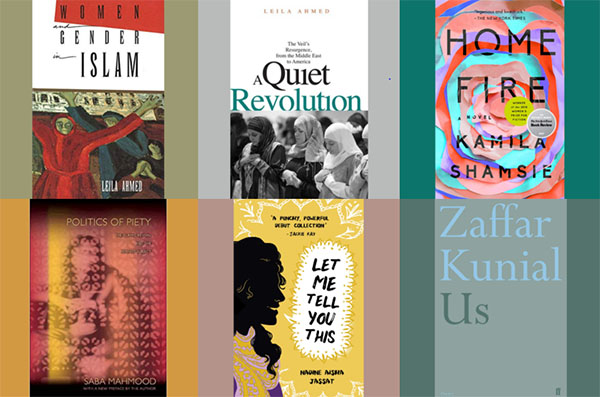Islamophobia Awareness Month 2020
Throughout November, the University and Students’ Union are holding events and sharing stories and resources in support of Islamophobia Awareness Month.

Alumna and Senior Lecture in World Literature at Queen Mary, Dr Nadia Atia (English Studies: Writing in the Modern Age MA, 2006; English PhD, 2010) recommends her top poetry, fiction and non-fiction picks that we should be reading all year round, and especially this month in recognition of Islamophobia Awareness Month. Find out more @alumni_qmul_official
Islamophobia Awareness Month started in 2012 to deconstruct and challenge stereotypes about Islam and Muslims, and to highlight the positive contribution of British Muslims to society.
Our Muslim student society leaders have been working together to organise the Students’ Union’s annual Islamophobia Awareness Month campaign. Their campaign will raise awareness of Islamophobia, the issues that it causes, and the impact this has on Muslims in the UK and at our University. They will also celebrate Islam and the variety of contributions of Muslims to our society while supporting our Muslim students.
The Students’ Union is also running a series of student-led events in support of Islamophobia Awareness Month. Upcoming events include:
- Navigating the System: Muslim Student Leaders – Tuesday 17 November, 6-7.30pm | Register now. Panellists will be sharing their experiences as leaders working in Higher Education, and also exploring Islamophobia faced in Students' Unions.
- Diverse(ish): Muslim Student Experiences – Thursday 19 November, 6-7.30pm | Register now. Diverse(ish) is the SU’s anti-racist forum that provides a space for students to share their own experiences.
The Alumni Engagement Team is also raising awareness by sharing profiles of alumni and students working to combat Islamophobia, and through bringing academic voices into discussions around Islamophobia and Islamophobia Awareness Month. Tune in to their Instagram account throughout November.
What is Islamophobia?
Islamophobia “is when someone is targeted (including Islamic institutes and organisations), discriminated against or excluded in any way, due to their actual or perceived Muslim identity. It also includes prejudice that promotes fear against Muslims and Islam which further perpetuates an unsavoury climate of hatred.”
*Source - https://touchstonesupport.org.uk/islamophobia-awareness-month/
Report + Support
We want Queen Mary to be the most inclusive university of its kind, anywhere. If you or someone else have experienced bullying and harassment, hate incidents or gender-based violence, we encourage you to tell us about it. All staff, students and visitors to our campus can access support information about specialist services or make a report to the University. Visit Report + Support.
If you require emergency help, please call emergency services on 999. You can also report non-emergency crimes on 101.